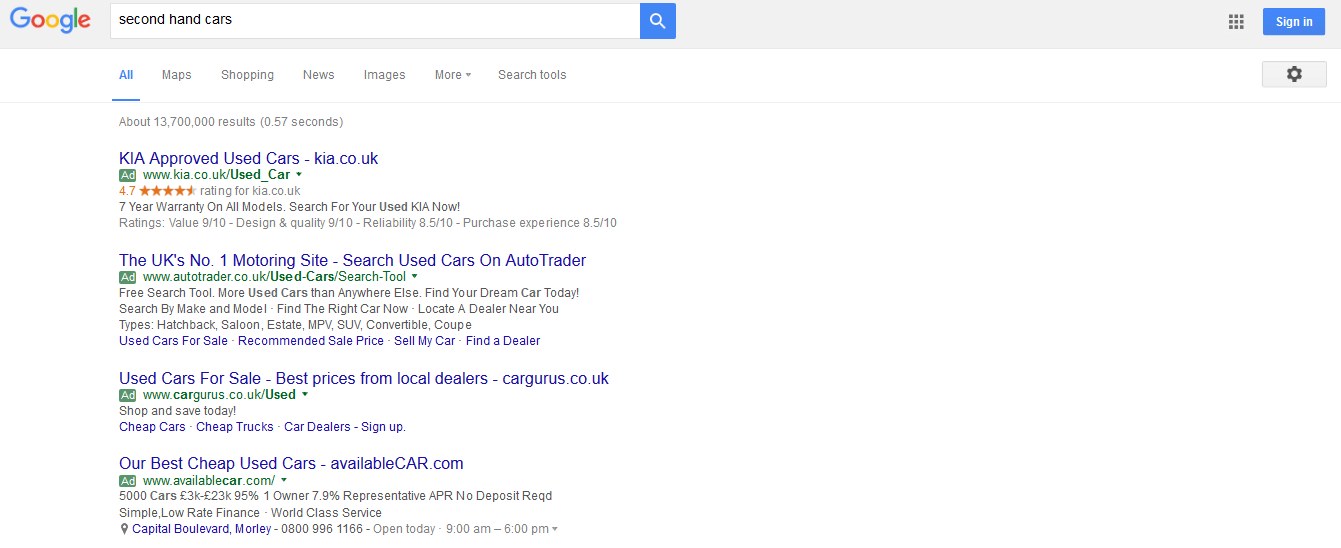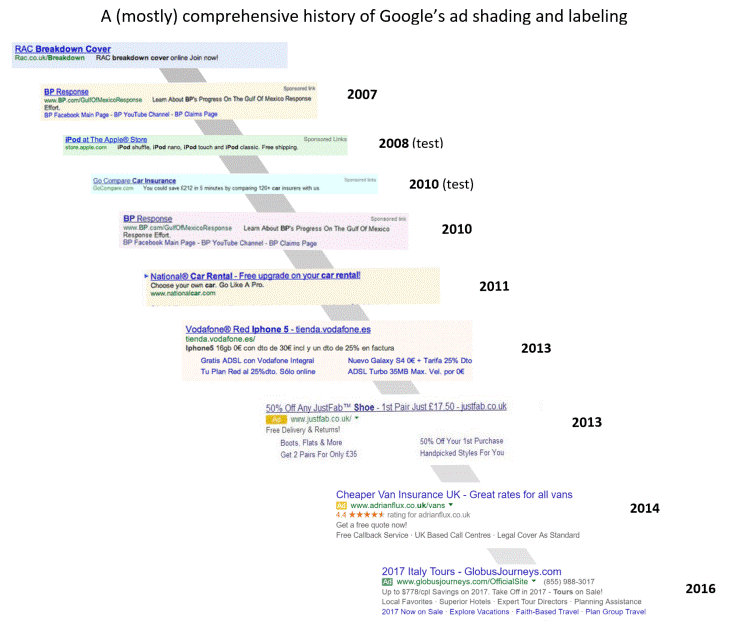One of those age old questions that we are tasked with is which channel is better PPC or SEO? What seems to fuel an endless debate between search marketers in the digital landscape is forever evolving, and with key changes to Google’s SERP layout to cater for uniform ad formatting across devices it is again important to evaluate the interaction between the two channels.
Here at Blue Digital, we believe PPC should complement an SEO campaign and form part of an integrated digital marketing campaign. In this article we will look at the trends that have re-surfaced the discussion and build the case for a multi-faceted approach to your digital marketing campaign.
Let’s Explore the Trends
1. Greater real estate for PPC Ads
In February of 2016, we saw Google change the way it structures its SERPs to show 4 paid ads above the fold and remove the presence of right-hand side ads. This was rumoured by MOZ as a way to keep consistency in the way that ads were presented across devices as right-hand side ads were not supported on mobile devices.
The importance of this for marketers is that it means for a large proportion of Google searches, users are presented with only paid search listings and have to scroll to find an organic listing. Below is an example of a search for ‘second hand cars’ where you can see this demonstrated in full display.

This combined with the input of local search results displayed in the map listing means that if you aren’t optimised for local SEO and you don’t currently use PPC as a channel for your marketing, the visibility of your organic listings to searchers is diminishing. What really hits home is when you consider the next trend in tandem with the new layout change.
2. Users can’t distinguish ads
One of the most alarming trends was the announcement by Ofcom that their research found around 50% of users cannot identify paid ads. Shocking the majority of the digitally savvy to their core it is somewhat surprising that this isn’t new research, a study by Varn of 1,010 internet users also found that 50.6% couldn’t identify ads in the search results.
Whilst this may seem unfathomable due to the presence of the little ‘ad’ notification on both Google and Bing, it is important to mention that ad blatancy has progressively diminished over the past decade with the complete removal of shading to the simple notation next to the URL as you can see here:

Thus, with the inclusion of sitelinks, reviews, pricing and other markups being pulled into both organic and paid listings as well as the almost indistinguishable formatting of the two, it is somewhat unsurprising that users are unable to identify ads.
So, with ads now taking up a large proportion of the real estate users are faced with on entering a query combined with an inability to identify which listings are paid, is it now unfeasible to rely solely on a silo approach, relying purely on organic listings over PPC?
We would argue that PPC can and in many cases should complement your SEO campaign and in this stage of the article we will build the case why.
Building the Case
The key to determining the relationship between PPC and SEO for your business is to understand your customer journey and how users interact with search at each phase of that user journey. Whether you require PPC or SEO is dependent upon the user intent of the search and the phase of the customer journey that you are targeting, here we explain why.
In the beginning of most customer journeys is a research phase. In this stage a user will have search queries such as:
“what is the best…”
“where can I buy…”
“new trends in…”
At this stage of the funnel competition is usually less intensive. What this means for marketers is that great content that is well structured, focused around long tail search queries and considering user intent can occupy prime search real estate without needing massive domain authority or paid impetus. It is also a reoccurring trend that non-transactional and more research driven queries show less ads meaning your content won’t be forced down the SERP and will be visible above the fold to a searcher.
Further down the neck at the sharper end of the funnel, competition is much fiercer and searches have much higher commercial intent. At this end of the funnel, breaking into the marketplace to position against companies with higher worth and authority in their domain will require a long term SEO approach meaning deriving a short term ROI is much more difficult.
This is where PPC can help you deliver that ROI as with the right targeting, bidding and landing pages you can achieve instant visibility and conversions. At this phase you will also find the 4 ads layout in the SERPs combined with local map listings for relevant services or product suppliers in the area, so again a good PPC campaign can make you visible in these competitive markets.
Ultimately, it is about finding the blend that works to deliver the highest number of conversions and ROI for your business at the lowest cost per acquisition but better to combine channels and find the right combination rather than use one channel in isolation.
